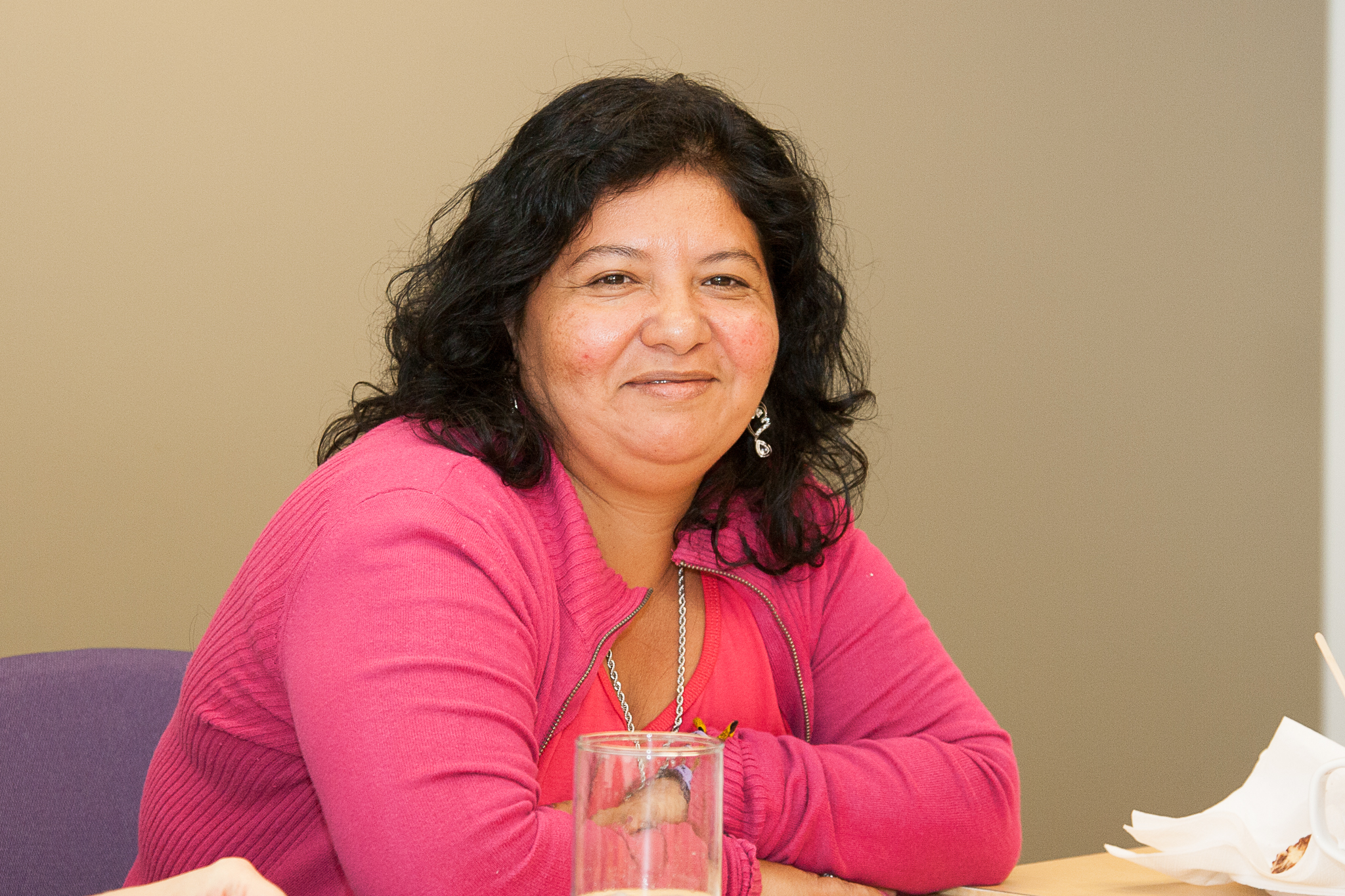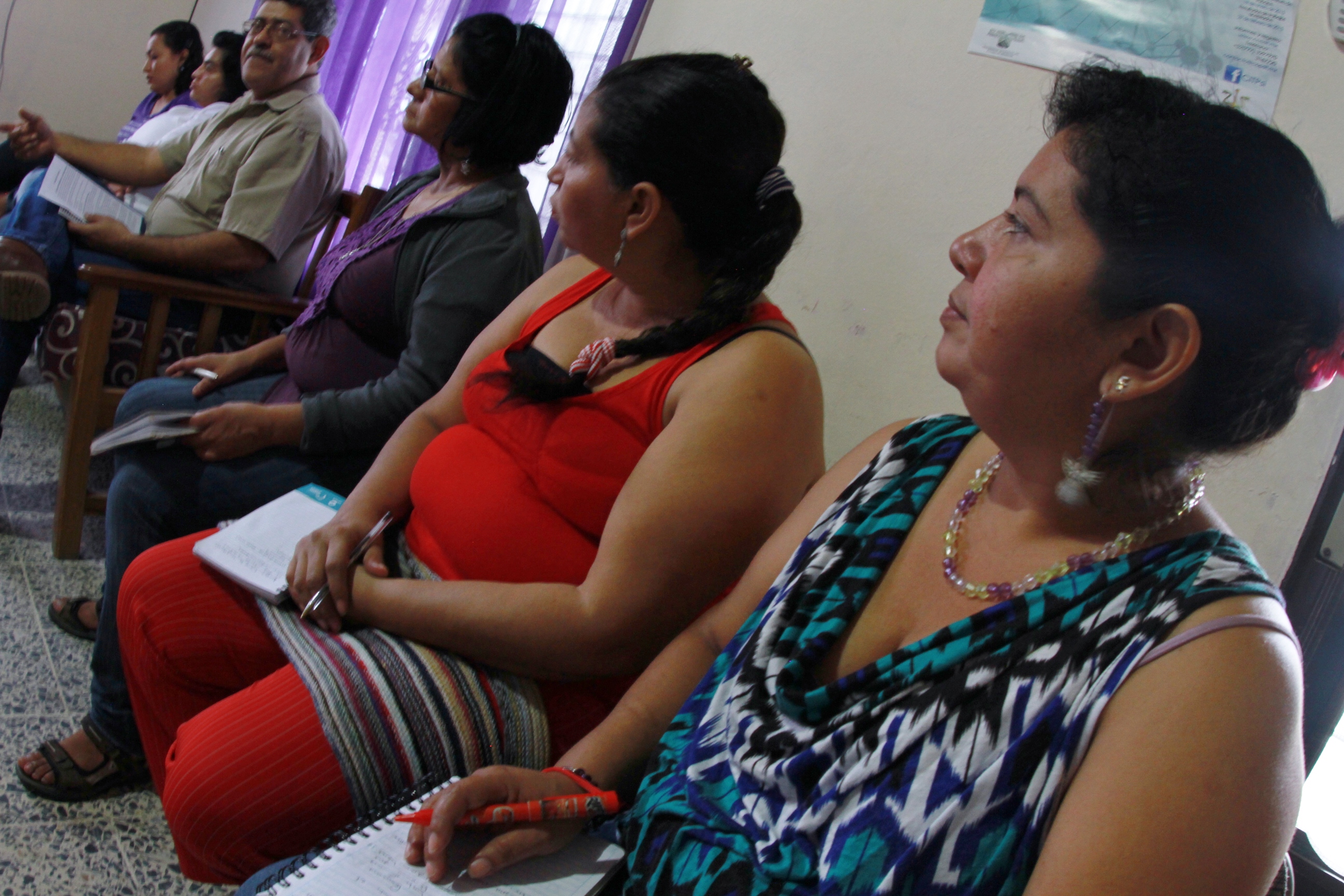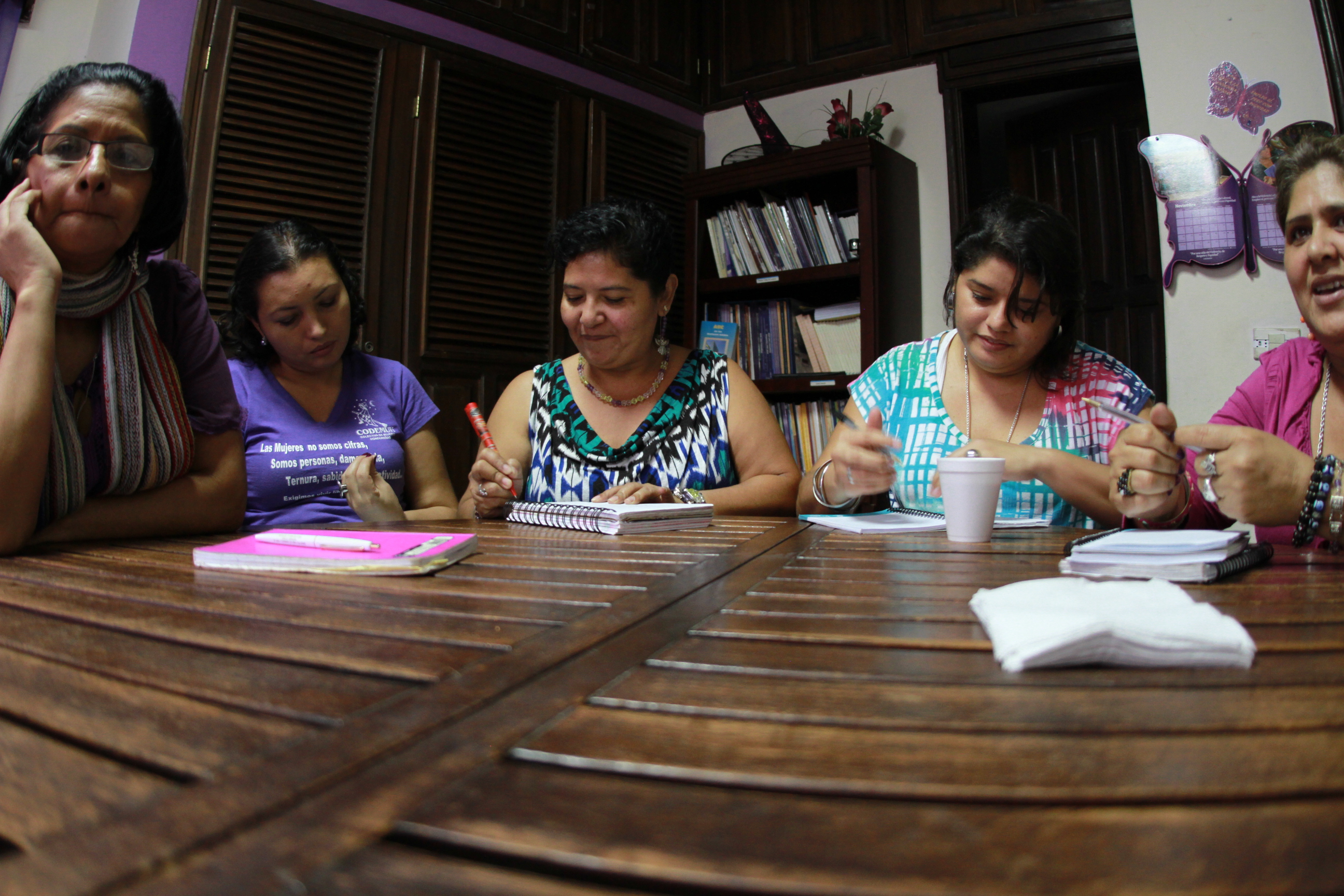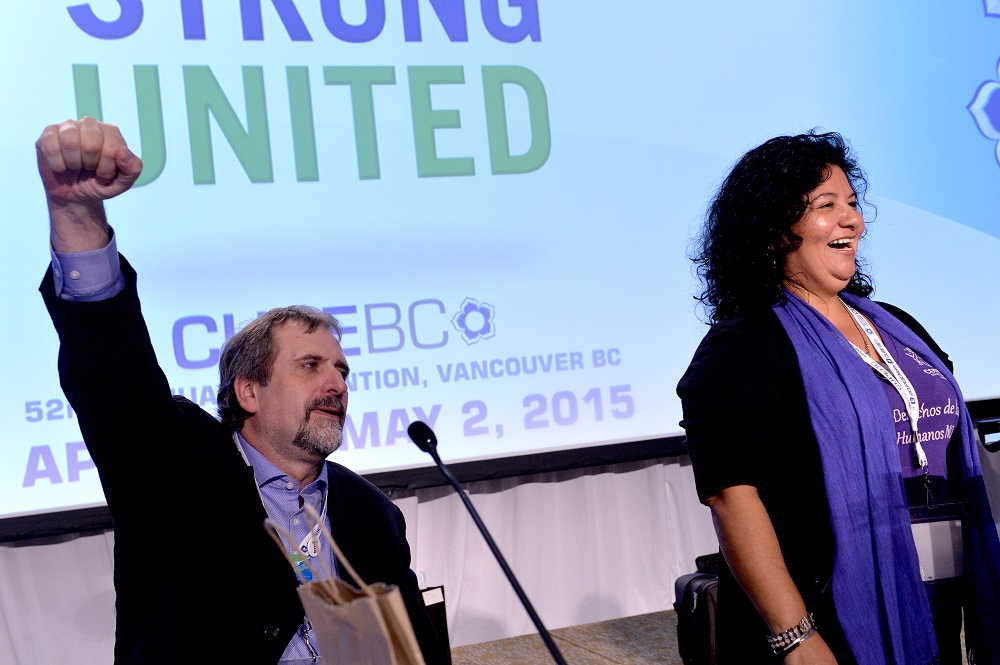Conditions in Canadian-owned Gildan garment factories are among the worst in Honduras says Reyna Tejada, a former factory worker and representative from CODEMUH, a feminist labour organization. Tejada was in Vancouver to speak at the CUPE-BC convention, held April 29 to May 2.
Gildan factories produce t-shirts, fleeces and apparel for other companies to put their logos and graphics on. The company currently has contracts for brands such as New Balance and Secret.
Founded in Montreal in 1984, Gildan closed its last factory in Canada in 2007, moving manufacturing to countries where it can take advantage of free trade zones and cheap labour. Gildan’s market share doubled between 2009 and 2013, and since Canada and Honduras have signed a fair trade agreement, in 2014, Gildan is planning to increase sales in Canada.
Gildan has been accused of firing workers for organizing unions and failing to comply with occupational health standards in Honduras, Haiti and the Dominican Republic.
“By working together we are going to be able to work towards stopping workplace violence and ensuring we have jobs,” says Tejada via translation by Kathryn Janzen, the Executive Director of CoDev Canada, a Canadian NGO that has partnered with CODEMUH since 1998.

Reyna at HEU meeting in Vancouver in May 2015 / Photo taken by Caelie Frampton
CODEMUH receives support from CUPE-BC, as well as other Canadian unions, for its work improving the health and safety conditions of women working in maquilas (garmet factories run by foreign companies that export product to the countries of the company) in Honduras.
For over 22 years, CODEMUH has been fighting to improve the working condition in maquilas. Workers, who are mostly young women, suffer from neck and spinal injuries from being hunched over, and tendentious and rotator cuff injuries due to making the same repetitive action.
In one shift a worker typically does over 60,000 repetitive movements while sewing, for example, between 6,000 and 7,000 arms onto shirts. She’ll earn about $245 a month, representing the lowest-paid sector in one of the poorest countries in the hemisphere. If she has to stop working due to injuries, there is no compensation from the company and no government benefits.

Reyna (right) in a meeting with CODEMUH coordinators / Photo taken by Julián Arango
While CODEMUH represents women from many different factories, Tejada says that the most complaints come from Gildan factories. Gildan, which has head offices in Montreal, organizes workers on what they call a four-by-four system: four, 11.5 hour days in a row, followed by four days off. However, women are often pressured to work extra days, so they don’t get the four days off, and the long hours and intensive work mean they get injured sooner and suffer more serious health complications.
Tejada says that the four-by-four system is illegal in Honduras, where employers are not supposed to schedule shifts longer than eight hours. However, the government does not enforce the law, and Gildan has refused to change its structure. “We want them to respect Honduran law, especially labour laws. If they respect our laws then we will be able to ensure that its work with dignity. We are not against work. We want job, but jobs with dignity,” says Tejada.
CODEMUH connects injured women with medical specialists and advocates for them to get ‘duty to accommodate’ status, so that the employer has to adapt their working conditions to be no longer harmful. So far CODEMUH has helped over 100 women get duty to accommodate certificates though getting the companies to comply is difficult. Women who return to adapted work conditions are often discriminated against and put to work in the most menial tasks.

Reyna (centre) in a meeting with CODEMUH coordinators / Photo taken by Julían Arango
CODEMUH recently won two cases at Honduras’ Supreme Court involving women whose rights were violated. The organization is now appealing four different cases involving women who were wrongfully fired from their jobs, including one from Gildan. Next year it will propose a new occupational health and safety law. The current law was written in 1967, and so does not take into account work conditions in factories, which did not operate in Honduras until the 1980s.
Tejada is hopeful that with international support COMDEUH will be able to pressure Gildan to improve conditions in its factories, “We are hoping we can put a lot of pressure on our government and international pressure as well through our solidarity.” Teams from CUPE-BC and other unions have traveled to Honduras to help COMDEUH document the health and safety issues workers face, and to provide training on occupational health and advocacy.
Julia is a Postdoctoral Fellow and Lecturer at Simon Fraser University, in Vancouver. She holds a PhD in Peace Studies, from the University of Bradford in the UK, and has worked in North America, Europe and Africa on issues related to human rights, development and global health. @juliaheather
Photos of Renya Tejeda provided by CoDev
Editor’s note: An earlier version of this article incorrectly named the Canadian-owned factory as Giland instead of Gildan.



